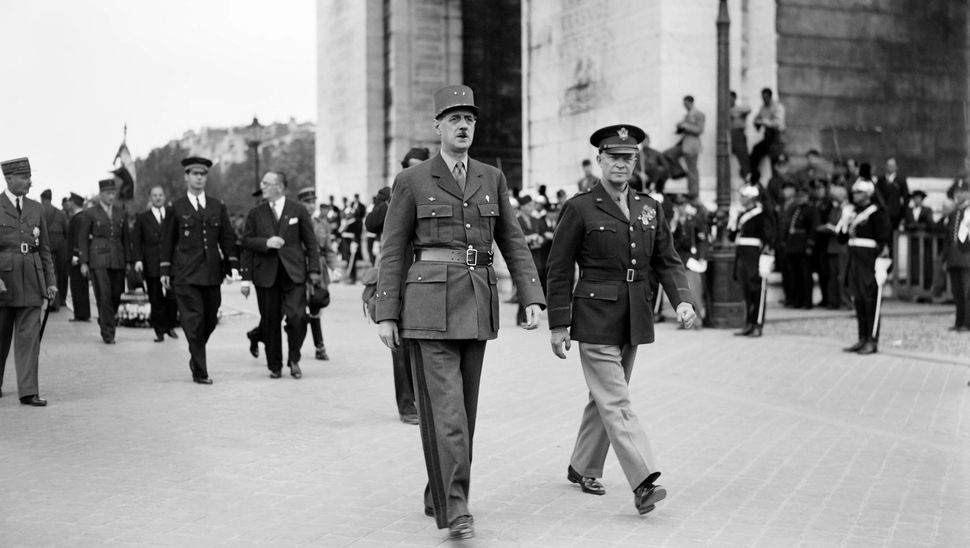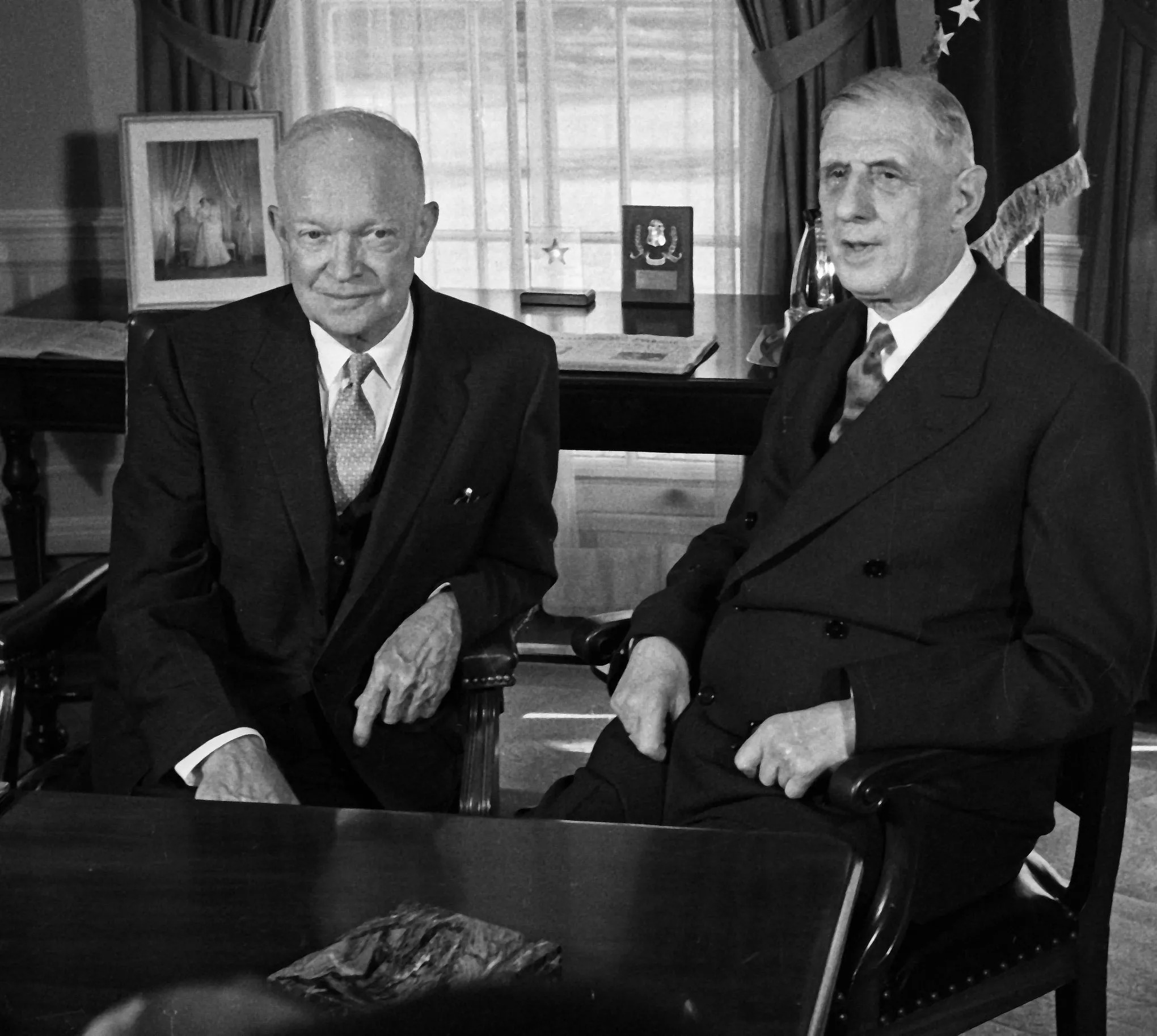De Gaulle – Eisenhower alliance and friendship in war and peace
Talk

En juin 1945, à Paris, le général Charles de Gaulle sur les Champs Elysées, en compagnie du général américain Dwight Eisenhower. afp.com/STR
Virtual
June 13 - June 13, 2023
“French-American Histories, one story, two narratives” is a program of virtual talks launched by the Villa Albertine in collaboration with the Federation of Alliances Françaises USA. Each episode reveals a different facet of the vibrant French-American tapestry, through interviews with leading scholars, experts, and practitioners conducted by Dr. Iris de Rode, an expert in the history of French-American relations. The interviews will be broadcasted live and recorded monthly at the French Embassy or other locations in the United States. For October, we are thrilled to host Prof. Olivier Zunz for an episode focusing on Alexis de Tocqueville.
“De Gaulle – Eisenhower alliance and friendship in war and peace”
Watch the episode below:
An Interview with Prof. William I. Hitchock: Olivier Zunz: Professor University of Virginia, author of: The Age of Eisenhower: American and the World in the 1950s (New York: Simon and Schuster, 2018)
The alliance and friendship between Charles de Gaulle and Dwight D. Eisenhower was a
complex and profound bond that endured through the challenges of war and the pursuit
of peace. As two towering figures of their time, De Gaulle, the resolute leader of Free
France, and Eisenhower, the revered Supreme Allied Commander, shared a mutual
respect and admiration for each other’s leadership qualities and strategic acumen. Their
partnership during World War II saw them navigate the intricacies of military
cooperation and political diplomacy, as they worked together to liberate Europe from
Nazi occupation. Beyond the battlefield, their friendship continued to evolve,
encompassing shared ideals of democracy and the belief in a strong Franco-American
alliance. Despite occasional disagreements and tensions, De Gaulle and Eisenhower
recognized the importance of their relationship in shaping post-war Europe and
fostering stability in a rapidly changing world, cementing a legacy of a profound and
complex alliance between two exceptional leaders.
Prof. William I. Hitchcock is the James Madison Professor of History at the University of Virginia. His work and teaching focus on the global history of the 20th Century, in particular the era of the two world wars and the cold war. He received his B.A. degree from Kenyon College in 1986 and his Ph.D. from Yale University in 1994. He taught at Yale for six years, and served as the Associate Director of International Security Studies there. He published France Restored: Cold War Diplomacy and the Quest for Leadership in Europe (UNC, 1998) and co-edited a volume with Paul Kennedy titled From War to Peace: Altered Strategic Landscapes in the 20th Century (Yale, 2000). His book, The Bitter Road to Freedom: A New History of the Liberation of Europe (Free Press, 2008) was a finalist for the Pulitzer Prize, a winner of the George Louis Beer Prize, and a Financial Times bestseller in the UK. In 2010, he moved to the University of Virginia. His most recent book is The Age of Eisenhower: America and the World in the 1950s (New York: Simon and Schuster, 2018), which was a New York Times bestseller.

Rue des Archives/Rue des Archives/ Picture Allian
ABOUT THE PROGRAM
“FRENCH-AMERICAN HISTORIES, ONE STORY, TWO NARRATIVES”
240 years ago, fighting side by side for American independence, France was the first ally of the newly formed United States of America. Since then, the two countries have stood firm as “Sister Republics”, championing shared principles of democracy, freedom, and equality. The durable partnership has been characterized by a shared ambition and a common necessity for cooperation in a wide variety of fields in an increasingly globalized world. These encounters, spanning more than two centuries and ranging from the military to economic policy, agriculture, trade, philosophy, art, science and technology, have resulted in dynamic, fruitful and inspirational cross-exchanges that have shaped the destiny of both countries.
The two countries have numerous similarities but also separate histories, cultures, and institutions, making the relation dynamic and creative, but also at times contentious. Over the years, comparable concepts that have been implemented in the distinct French and American cultures have flourished, but also encountered alteration, adaptation or even opposition, requiring hurdles to be overcome and compromises to be found. France and the United States have frequently expressed their conviction in a single, unifying story, yet they needed two narratives to tell their peoples: One Story, Two Narratives.
